Daily Vocabulary Words: List of Daily Used Words in Leading International Newspapers
Hi there. Welcome to this special section @ Wordpandit.
Our endeavour here is very simple: to highlight important daily vocabulary words, which you would come across in leading newspapers in the country. We have included the following newspapers in our selection:
• The New York Times
• The Washington Post
• Scientific American
• BBC
• The Guardian
• Psychology Today
• Wall Street Journal
• The Economist
We are putting in extensive work for developing your vocabulary. All you have got to do is be regular with this section and check out this post on a daily basis. This is your repository of words that are commonly used and essentially, we are posting a list of daily used words. Hence, this has significant practical application as it teaches you words that are used commonly in leading publications mentioned above.
Visit the website daily to learn words from leading international newspapers.
WORD-1: Canvassing
CONTEXT: The campaign has spent six figures on mailers and digital advertising, and activists are holding phone banks and canvassing.
Explanatory Paragraph: Imagine you’re walking around your neighborhood, knocking on doors to ask people if they can help find your lost dog. You talk to as many people as you can to get help. That’s a bit like “canvassing” – when you go around talking to people, asking for their opinions or trying to get their support for something important.
Meaning: The act of soliciting votes, opinions, or support from a large number of people, especially from a specific area (noun).
Pronunciation: KAN-vuh-sing
Synonyms: solicitation, campaigning, electioneering, polling, surveying, outreach, petitioning
Usage Examples:
1. The political party started canvassing the neighborhood ahead of the election.
2. Canvassing opinions on the new park design, the committee knocked on every door.
3. Volunteers were canvassing downtown to raise awareness about the charity event.
4. The canvassing effort helped them understand the community’s needs better.
WORD-2: Disavowed
CONTEXT: the group founded by Bernie Sanders in 2016, though Sanders has disavowed the “uncommitted” campaign.
Explanatory Paragraph: Imagine you built a tower of blocks with a friend, but then it fell down. If your friend said they didn’t help build it because they didn’t want to get in trouble, that’s like “disavowing” – saying you had nothing to do with something, especially if you actually did.
Meaning: To deny any responsibility or support for something; to declare to be untrue or not connected with (verb).
Pronunciation: dis-uh-VOWD
Synonyms: deny, renounce, repudiate, reject, disclaim, disown, retract
Usage Examples:
1. The politician disavowed any ties to the controversial group.
2. After the scandal, the company quickly disavowed the actions of its former CEO.
3. He disavowed the comments he made in the past after learning more about the issue.
4. The organization disavowed the extremist views held by some of its members.
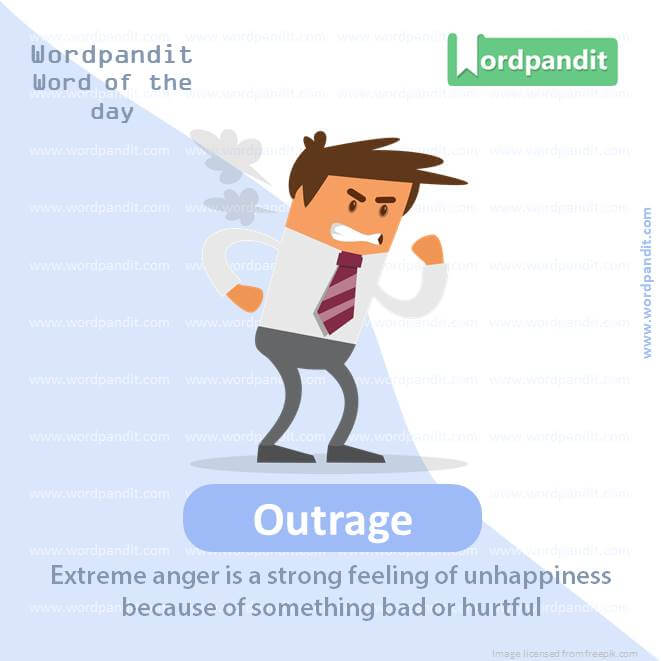
WORD-3: Outrage
CONTEXT: Levin frames Listen to Michigan as a way for Democrats to express their outrage while leaving the door open to return to the fold in November and thus a pragmatic alternative to calls from a separate group of activists to abandon Biden.
Explanatory Paragraph: Imagine someone took the last piece of cake that you were saving, and it made you really upset and angry. That feeling of being very upset because something is very wrong or unfair is what “outrage” means.
Meaning: Extreme anger is a strong feeling of unhappiness because of something bad or hurtful (noun).
Pronunciation: OUT-rage
Synonyms: indignation, fury, anger, wrath, scandal, shock, horror
Usage Examples:
1. The decision caused outrage among the community members.
2. News of the scandal sparked outrage across the country.
3. He expressed his outrage at the injustice he witnessed.
4. The outrageous act led to widespread protests.
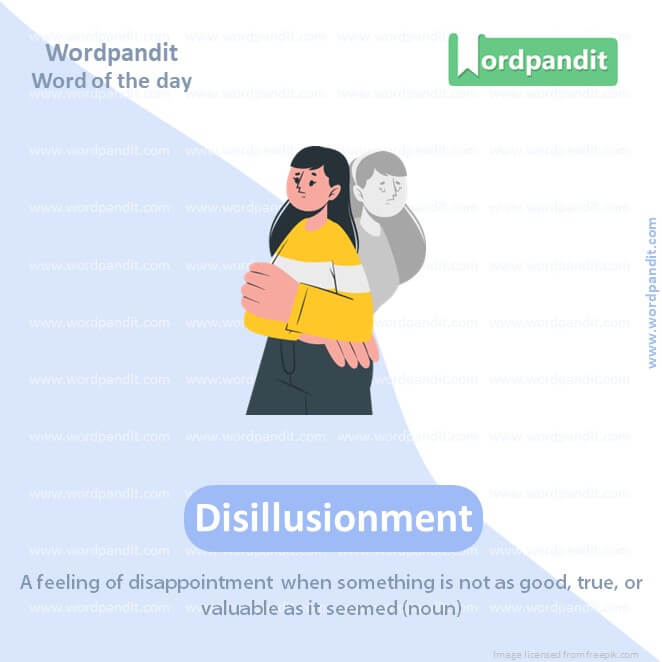
WORD-4: Disillusionment
CONTEXT: a refusal to take disillusionment with Biden seriously could also make a Trump presidency more likely.
Explanatory Paragraph: Imagine believing that a superhero was real and could fly, but then you learn they’re just a character in a movie and can’t really fly. You might feel sad and disappointed because things aren’t as amazing as you thought. That feeling is called “disillusionment.”
Meaning: A feeling of disappointment when something is not as good, true, or valuable as it seemed (noun).
Pronunciation: dis-i-loo-zhuhn-ment
Synonyms: disenchantment, disappointment, dissatisfaction, letdown, cynicism, disillusion
Usage Examples:
1. The disillusionment with the political system is growing among voters.
2. After learning the truth, she felt a deep sense of disillusionment.
3. His disillusionment with his job led him to seek a new career.
4. The team’s loss led to disillusionment among its most loyal fans.
WORD-5: Maddening
CONTEXT: I find people who threaten to withhold their votes from Biden maddening.
Explanatory Paragraph: Imagine you’re trying to concentrate on drawing, but there’s a fly that keeps buzzing around your head, not leaving you alone. It’s so annoying that it makes it hard to focus. That feeling of being really annoyed and frustrated is what “maddening” means.
Meaning: Extremely annoying or displeasing; causing anger or frustration (adjective).
Pronunciation: MAD-uh-ning
Synonyms: infuriating, exasperating, irritating, aggravating, vexing, frustrating, annoying
Usage Examples:
1. The constant noise from the construction site was maddening.
2. He found the puzzle maddeningly difficult to solve.
3. Her maddening indifference to the situation frustrated everyone.
4. The maddening traffic made him late for his appointment.
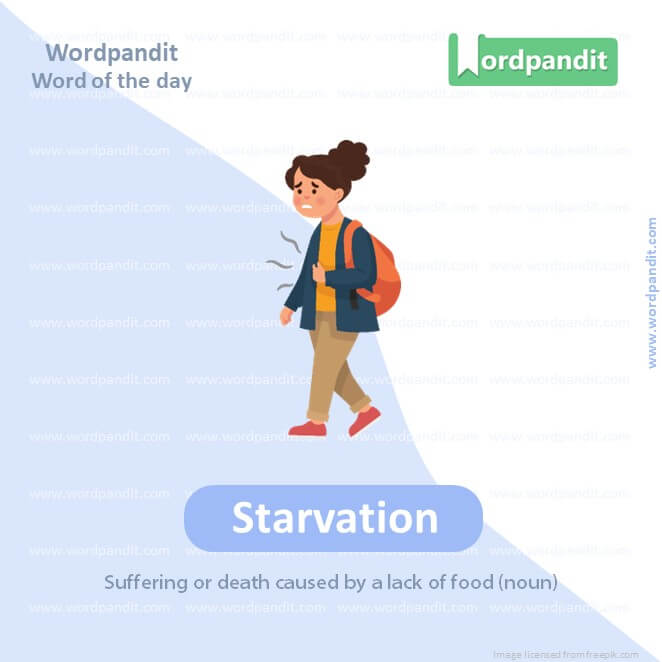
WORD-6: Starvation
CONTEXT: the starvation of Gazans and the forced displacement of over a million people that evoked the Nakba.
Explanatory Paragraph: Imagine you have a plant, but you forget to water it for a long time, so it starts to wilt and can’t grow. Just like the plant needs water, people need food to stay healthy and strong. When someone doesn’t get enough food for a long time, they experience “starvation” – a serious lack of food that can make them very sick.
Meaning: Suffering or death caused by a lack of food (noun).
Pronunciation: star-VAY-shuhn
Synonyms: famine, hunger, malnutrition, undernourishment, dearth, scarcity, want
Usage Examples:
1. The severe drought led to widespread starvation in the region.
2. Aid organizations are working to prevent starvation in crisis-hit areas.
3. Stories of starvation emerged from the war-torn city.
4. Measures are being taken to combat starvation among the poorest communities.
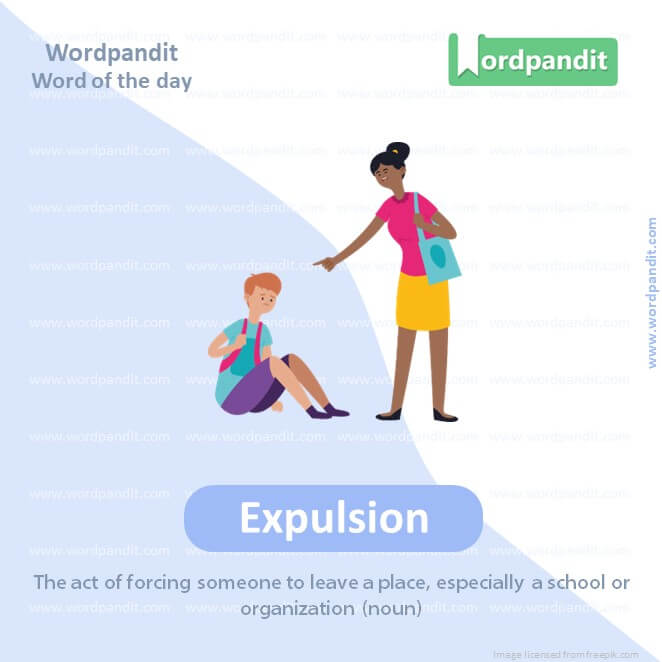
WORD-7: Expulsion
CONTEXT: the mass flight and expulsion of Palestinians when Israel became a state.
Explanatory Paragraph: Imagine you’re playing a game by the rules, but someone else is not playing fair, breaking the rules on purpose. If the person in charge of the game decides that the rule-breaker can’t play anymore and has to leave, that’s what “expulsion” is – being made to leave a place or group because of not following the rules.
Meaning: The act of forcing someone to leave a place, especially a school or organization (noun).
Pronunciation: ik-SPUL-shuhn
Synonyms: removal, banishment, dismissal, exclusion, ousting, ejectment, discharge
Usage Examples:
1. The student faced expulsion for breaking the school’s code of conduct.
2. Expulsion from the club was the consequence of his actions.
3. The diplomat’s expulsion was a response to the spying allegations.
4. The university has a strict policy that could lead to expulsion for cheating.
WORD-8: Worsened
CONTEXT: The hostile environment has also worsened the relationship between Jewish and Palestinian citizens, raising fears of a return to the violence in mixed Arab-Jewish cities in Israel of nearly three years ago.
Explanatory Paragraph: Imagine you have a small scratch on your arm, but you keep scratching it instead of letting it heal. The scratch might get bigger and hurt more. That’s like when something “worsens” – it means it goes from bad to even worse because it’s not taken care of properly.
Meaning: To become worse or to make something worse (verb).
Pronunciation: WUR-suhnd
Synonyms: deteriorated, declined, degenerated, exacerbated, aggravated, intensified, amplified
Usage Examples:
1. The weather worsened overnight, leading to flight cancellations.
2. His condition worsened after the surgery.
3. The economic situation has worsened in recent months.
4. Efforts to negotiate worsened the tension between the two parties.
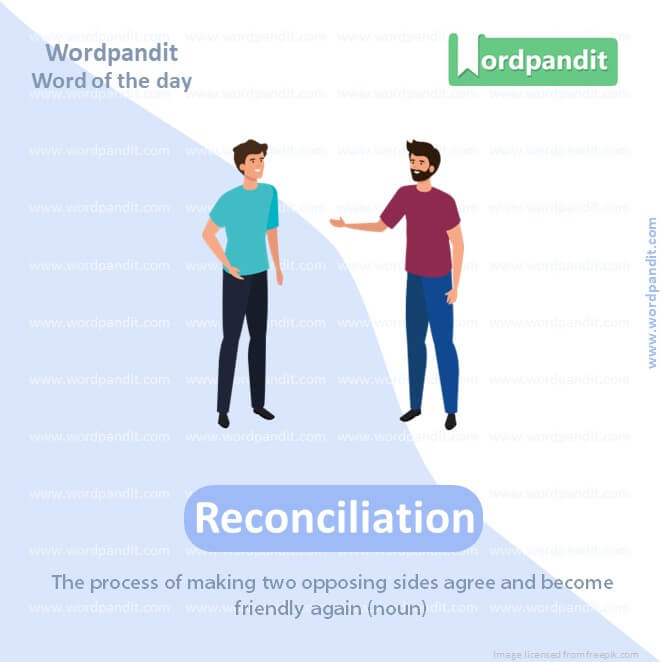
WORD-9: Reconciliation
CONTEXT: one that would signify a significant step toward reconciliation and an end to the cycle of violence.
Explanatory Paragraph: Imagine two friends who had a big argument and stopped talking to each other. Then, they decide to say sorry and become friends again. That act of making up and becoming friends again is called “reconciliation” – it’s when people or groups find a way to get along after a disagreement.
Meaning: The process of making two opposing sides agree and become friendly again (noun).
Pronunciation: rek-un-sil-ee-AY-shuhn
Synonyms: resolution, settlement, agreement, harmony, accord, rapprochement, detente
Usage Examples:
1. The reconciliation between the two families healed old wounds.
2. After years of conflict, the peace talks aimed for reconciliation.
3. The couple sought reconciliation after their temporary separation.
4. Reconciliation efforts helped mend the rift in the community.
WORD-10: Shackled
CONTEXT: No longer shackled by a prior dictate of the Supreme Court, the people were free to choose.
Explanatory Paragraph: Imagine you have a toy you really want to play with, but someone puts it in a box and locks it so you can’t get to it. Just like the toy is trapped and can’t be used, “shackled” means someone or something is tied up or restricted so they can’t move freely or do what they want.
Meaning: Confined or restricted in freedom; literally or figuratively chained (adjective).
Pronunciation: SHAK-uld
Synonyms: bound, chained, fettered, restrained, confined, restricted, hampered
Usage Examples:
1. The prisoners were shackled during the transport.
2. She felt shackled by her family’s expectations.
3. The new regulations shackled the company’s ability to expand.
4. His creativity was shackled by the strict rules of the competition.
Vocabulary Meaning
In the ocean of language learning, ‘vocabulary meaning’ is akin to the colorful coral reefs that add depth and vibrancy to communication. Yet, infusing our interactions with this vibrancy is often a challenge for many language learners. The crux lies in effectively deciphering and employing the ‘vocabulary meaning’.
Learning ‘vocabulary meaning’ isn’t about merely gluing words to their definitions. It’s about forming a deep understanding and connection with these words that transcends rote learning. To gain a comprehensive grasp of ‘vocabulary meaning’, one needs to navigate beyond textbook definitions and commit to exploiting diversified resources such as novels, films, music, articles, and digital content. This allows one to encounter vocabulary in a variety of contexts and actual usage, giving deeper insight into their meaning.
However, understanding ‘vocabulary meaning’ involves another essential aspect—memory retention. Techniques such as spaced repetition and the Leitner System offer effective methodologies to maintain and consolidate the ‘vocabulary meaning’. Additionally, leveraging mnemonic strategies can help etch words into your memory by linking them with unique stories or imagery that are personal and easily recallable.
Another way of mastering ‘vocabulary meaning’ is by immersing yourself in the language. Engage in regular conversations with native speakers if possible or utilize language exchange platforms to practice your skills. This not only bolsters your understanding of how the vocabulary is used but also helps articulate the ‘vocabulary meaning’ in the societal and cultural contexts.
In conclusion, gaining a robust grasp of ‘vocabulary meaning’ is a journey rather than an end goal. It requires dedication, perseverance and most importantly, a multi-faceted approach that includes diversified resources, effective memory strategies, and real-life application. With these strategies in place, the depths of ‘vocabulary meaning’ are no longer daunting but become an enchanting exploration of language.











